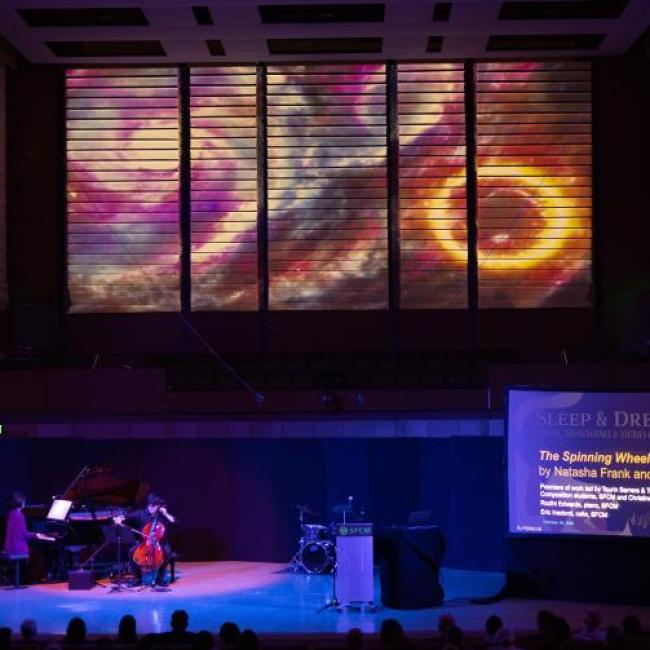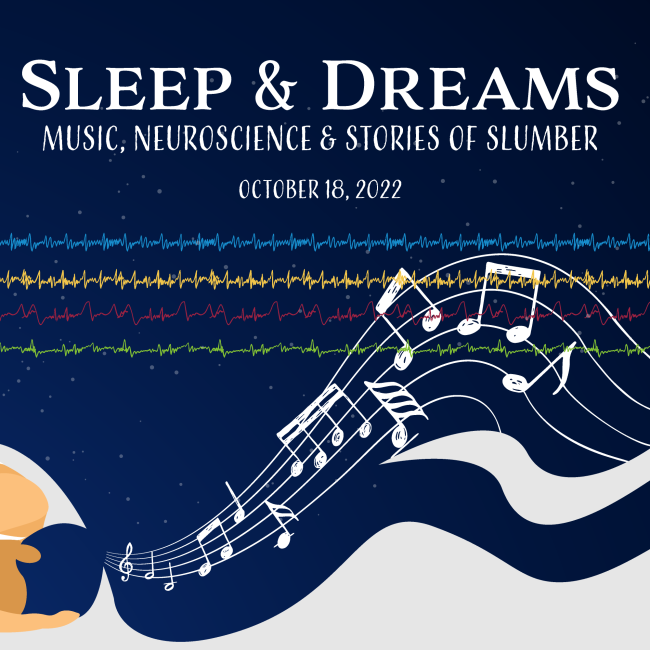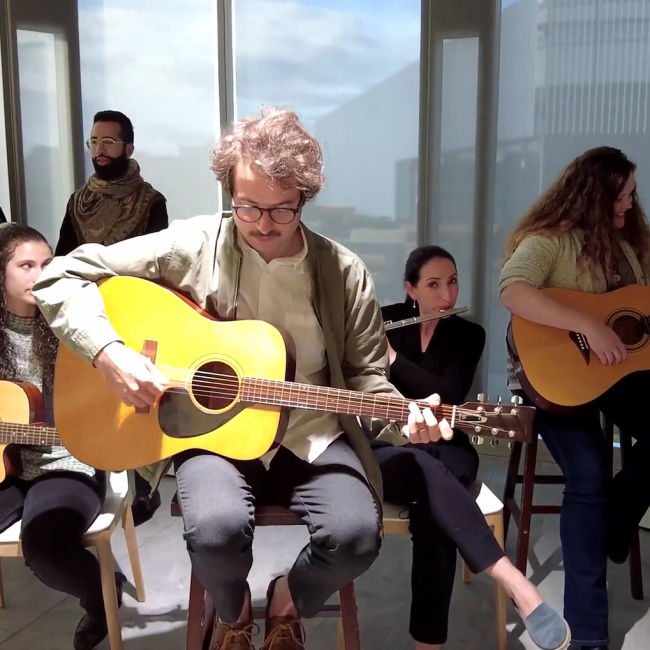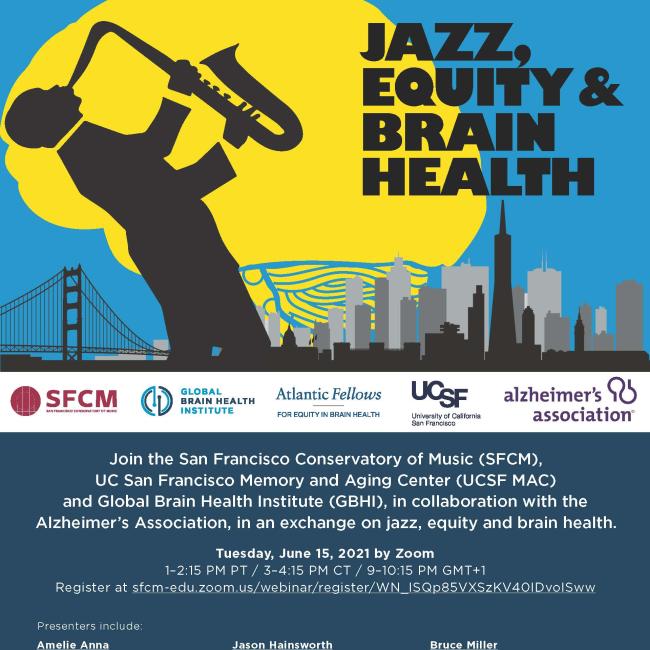Exploring Brain Health Disparities through Jazz
What can jazz music reveal about the brain, health disparities, and inclusion?
On June 15, leaders in science, music, and health equity explored this question in “Jazz, Equity and Brain Health,” the latest offering from the San Francisco Conservatory of Music (SFCM), UC San Francisco Memory and Aging Center (UCSF MAC) and Global Brain Health Institute (GBHI), in collaboration with the Alzheimer’s Association. Through talks and musical performances, the virtual program explored key concepts of dementia and brain health equity through the lenses of neuroscience and jazz.
A history of diversity, freedom, and inclusion
“Music, like science, connects us all in one way or another,” said Maria Carrillo, chief science officer of the Alzheimer’s Association. “We build community through music and through jazz.”
Originating in the African American communities of New Orleans, jazz has a history of welcoming and celebrating diversity and freedom. For many, it is a means to cope, to communicate, and to understand each other.
“(For me) music was a way to get out of a (bad) neighborhood, and a way for a shy and quiet boy to express himself as he couldn’t with words.'' said Jason Hainsworth, saxophonist and executive director of the Roots, Jazz, and American Music program at SFCM. “(Bringing music and brain science together) is a step toward improving how we relate to one another, how we empathize, and how we progress.”
Jazz music is characterized by a complex structure, yet it embraces improvisation and collaboration within that structure.
“Jazz is a glorious example of the human brain’s genius for collaboration,” said Josh Kornbluth, Atlantic Fellow for Equity in Brain Health and host of Citizen Brain, a video series connecting brain science with social justice. “Each time people make beautiful music together it’s a victory of belonging over othering.”
Music, like language, is a form of communication that activates overlapping but different circuits in the brain. According to Bruce Miller, co-director of GBHI and the director of the UCSF MAC, we’re just beginning to understand the power of music as prevention and treatment for brain health, neurodegeneration, mood disorders, and brain injuries.
“I believe it's a key to understanding and treating neurodegeneration,” said Miller.
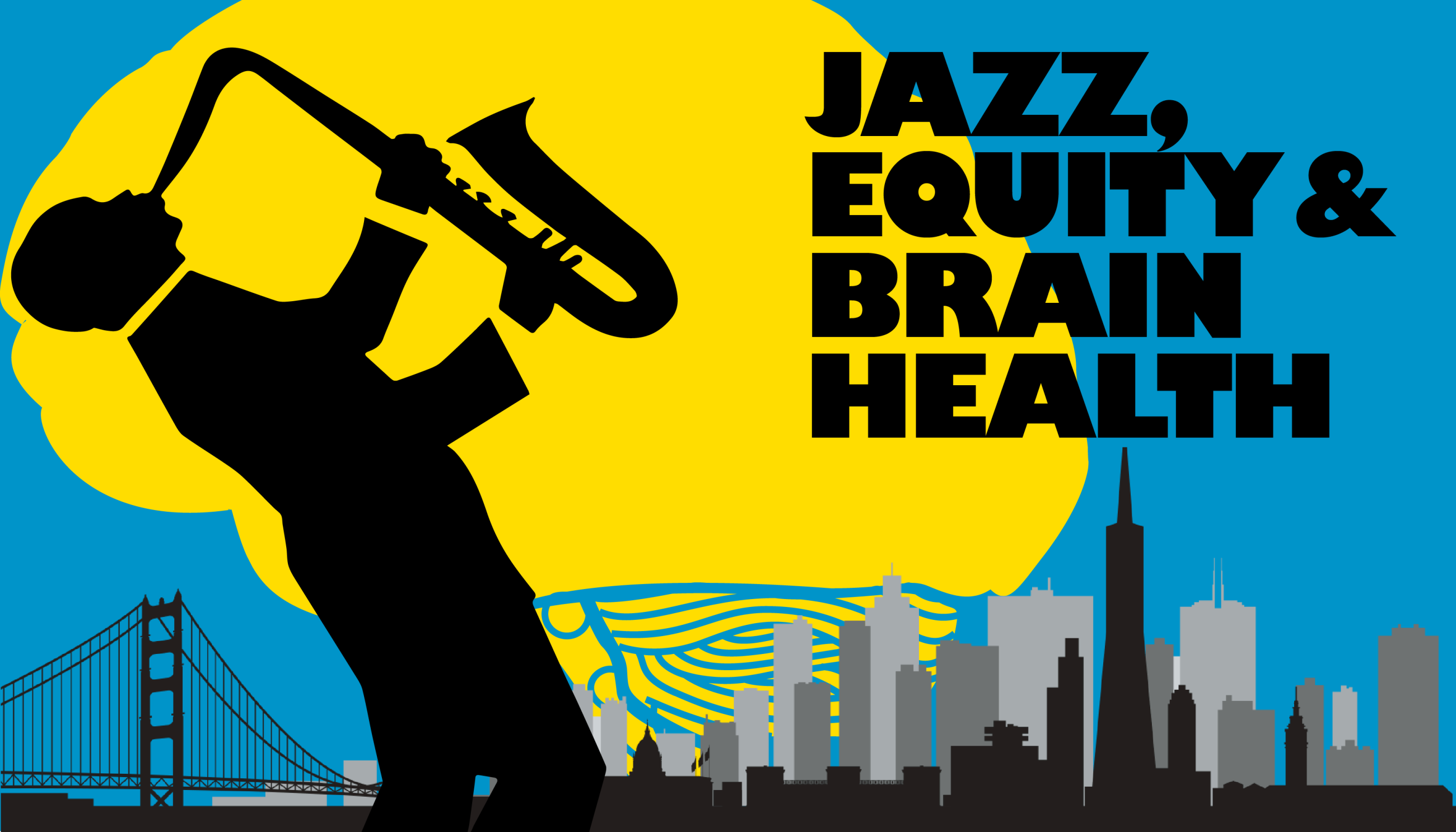
"Jazz, Equity and Brain Health" design by Caroline Prioleau.
A discriminate disease
“We are more similar than we are different,” said Jennifer Yokoyama, GBHI faculty member and associate professor of neurology and UCSF, noting that only .001 of genetic variations contribute to differences in appearance and health.
Yet there are many differences in how Alzheimer’s disease—the leading cause of dementia—affects different groups of people. For instance, older Black Americans are about twice as likely to have dementia as older white Americans, and older Hispanic Americans are about one and a half times as likely. Further, white Americans represent a smaller proportion of people with dementia, yet are more likely to be diagnosed.
Historically, such disparities have often been attributed to cultural and biological factors, such as genetics. However, research over the past several decades has shown that social determinants of health—such as safe housing, education, and access to nutritious foods—are the primary drivers of health outcomes, including Alzheimer’s disease and other dementias. Many of these risk factors are modifiable, potentially preventing up to a third of dementias in high income countries and more than 50% in low- and middle-income settings.
“Biology and culture certainly play a role in health outcomes,” said Serggio Lanata, GBHI faculty member and assistant professor of neurology at UCSF, “but they don’t tell the whole story.”
For instance, in San Francisco, racial and ethnic minorities live mostly in neighborhoods where it is difficult to access healthy foods and areas noted to access medical care less frequently. This has a direct consequence on health, such as the management of diabetes and high blood pressure, and these have downstream effects of increased risk for dementia. Through a community outreach program coordinated by GBHI at UCSF’s Memory and Aging Center, Lanata is partnering with community centers and clinics to address these challenges.
“The most vulnerable are the least represented,” said Lanata. “We’re looking to change this.”
Music for well-being
Music is often appreciated as an expression but it is also a powerful tool for processing and healing. Speakers noted their personal connections to music and how music can be used to process and to heal.
“Music is an avenue we can take to connect to people and places and moments that are important to us,” said Kai Kennedy, GBHI faculty member and associate professor of physical therapy at UCSF. ‘Furthermore, it allows us to connect to ourselves. To who we are underneath our labels to what we feel and how we want to experience the world.”
In addition to persons living with dementia, the power of music also has significant potential for caregiving.
“If we can look at music as being capable of connecting people living with dementia to their personhood, I think that same mechanism can be used for caregivers,” said Jennie Gubner, Atlantic Fellow for Equity in Brain Health and assistant professor of ethnomusicology at the University of Arizona. “Caregivers need to connect to personhood and selfhood themselves and to connect with the people they are caring for.”
“Music will always and forever be a soothsayer for me,” said Amelia Anna, a percussionist, vocalist, and composer at SFCM. “It is a way to put me into certain moods and a way to get me out of moods.” Anna, along with Hainsworth and Scott Pingel, principal bassist at San Francisco Symphony and SFCM faculty, also performed three pieces of jazz music during the event.
Jazz, Equity and Brain Health was the fourth event in a collaboration produced by SFCM, UCSF MAC and GBHI exploring the dynamic relationships of music, science and brain health. It took place during Addressing Health Disparities, a virtual conference to promote diverse perspectives across Alzheimer’s and dementia research hosted by the Alzheimer’s Association.
Event Participants
The event included the following participants: David Stull (President, SFCM), Bruce Miller, MD (Co-Director, GBHI, Director, UCSF MAC), Victor Valcour, MD, PhD (Executive Director, GBHI), Maria Carrillo, PhD (Chief Science Officer, Alzheimer’s Association), Amelie Anna (Percussionist, Vocalist, Composer; SFCM), Jennie Gubner, PhD (Ethnomusicologist, University of Arizona, GBHI), Jason Hainsworth (Director, Roots, Jazz, and American Music; Associate Dean of Diversity, Equity, and Inclusion; Jazz Saxophone, SFCM), Kai Kennedy, PT, DPT (Physical Therapist, UCSF, GBHI), Josh Kornbluth (Performer, Writer and Film- & Video-Maker, GBHI), Serggio Lanata, MD (Neurologist, UCSF, GBHI), Vivien Lou Chen (drummer; reporter, Bloomberg News) Scott Pingel (Principal Bass, San Francisco Symphony; SFCM Faculty), and Jennifer Yokoyama, PhD (Neurogeneticist, UCSF, GBHI).
A video recording of the event is available here.
Authors
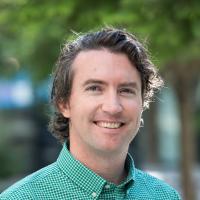
Niall Kavanagh
Communications Officer
GBHI Members Mentioned
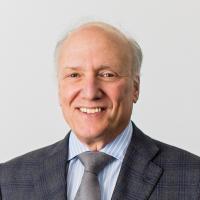
Bruce Miller, MD
Founding Director, University of California, San Francisco
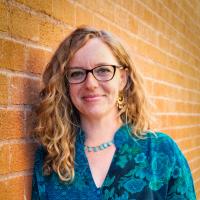
Jennie Gubner, PhD
Ethnomusicologist

Kai Kennedy, PT, DPT
Associate Professor of Physical Therapy
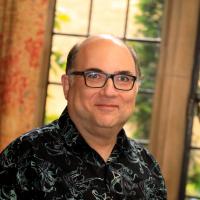
Josh Kornbluth
Performer, Writer, Film- & Video-Maker
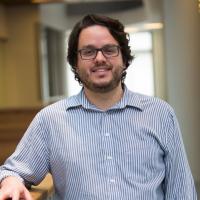
Serggio Lanata, MD, MS
Associate Professor of Neurology
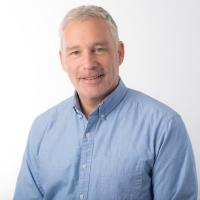
Victor Valcour, MD, PhD
Site Director, University of California, San Francisco

Jennifer Yokoyama, PhD
Associate Professor of Neurology
